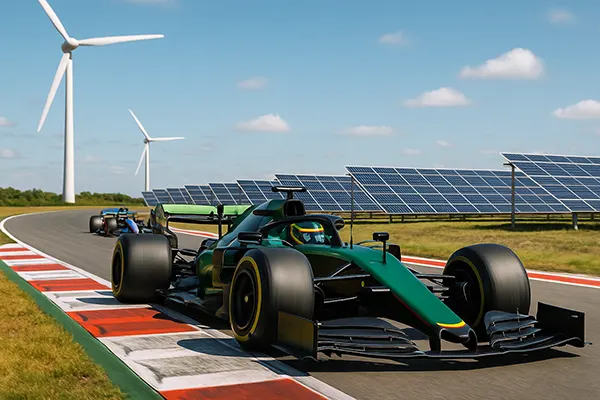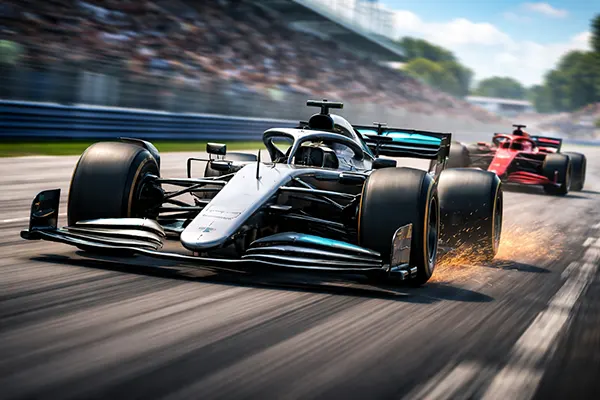
Ecological Transformation of Motorsport: How Sustainable Practices Influence the Betting Sponsorship Market
The global motorsport industry is undergoing a profound shift driven by environmental regulations, technological innovation, and growing societal expectations. Sustainability has become a central theme, influencing everything from race car engineering to sponsorship strategies. By 2025, the ecological transformation of motorsport is not only shaping how competitions are run but also redefining how betting companies and other stakeholders engage with the sport. This article explores the connection between sustainable practices and the sponsorship market, with particular attention to betting operators.
Green Innovations in Motorsport
In recent years, leading championships such as Formula 1 and Formula E have committed to ambitious carbon neutrality targets. Formula 1 aims for net-zero carbon by 2030, while Formula E has positioned itself as the first fully electric international racing series. Hybrid engines, synthetic fuels, and energy recovery systems are becoming standard, setting new benchmarks for eco-friendly performance.
These innovations are not just technical adjustments. They demonstrate a broader commitment to reducing the ecological footprint of motorsport. Event organisers are implementing circular economy models, minimising waste through recycling, and ensuring responsible resource use. Renewable energy is increasingly powering race tracks, from solar installations to wind-powered facilities.
For betting sponsors, these changes create a new narrative to align with. Supporting a championship that champions sustainability helps brands project responsibility and awareness, which is especially important in a sector often under regulatory scrutiny. Betting companies find themselves leveraging ecological innovation as part of their corporate social responsibility strategies.
Impact on Brand Reputation and Engagement
The alignment of betting companies with sustainable motorsport enhances credibility. Modern audiences are more inclined to trust businesses that actively contribute to global sustainability goals. In practice, this means that when a betting operator associates with a low-emission racing series, it strengthens their appeal to environmentally conscious consumers.
Additionally, betting sponsors can create targeted campaigns around sustainability themes. For instance, promoting eco-friendly betting experiences or linking special promotions to green initiatives during races. Such campaigns not only attract attention but also foster long-term engagement with an audience that values responsible behaviour.
In 2025, sustainability is no longer a niche demand but an expectation. Brands that fail to adapt risk being perceived as outdated, while those embracing ecological transformation gain competitive advantages in visibility and trust.
The Evolving Sponsorship Market
The sponsorship market in motorsport has always been dynamic, responding to global economic trends and shifting consumer preferences. The ecological transformation adds another layer of complexity, pushing sponsors to evaluate their long-term positioning. Betting companies, in particular, are adjusting their strategies to match the sustainability focus.
Some operators now allocate funds specifically for partnerships with championships that highlight environmental responsibility. This approach not only enhances image but also provides access to new markets where ecological regulations and public attitudes strongly favour green initiatives. Sponsorship contracts increasingly include clauses on sustainable practices, from carbon offsetting to responsible advertising commitments.
The integration of sustainability into sponsorship also influences the type of events that receive investment. Electric rally series, endurance competitions using hydrogen fuel cells, and university-led green racing initiatives are attracting growing attention from betting sponsors who want to be associated with future-oriented projects.
Shifts in Consumer Behaviour
Fans and bettors are becoming more selective about the brands they support. Transparency in environmental matters is now a key decision-making factor. Research in 2025 shows that nearly half of sports fans prefer to engage with brands that are environmentally responsible, a trend that directly affects betting sponsorship strategies.
This consumer shift has forced betting operators to re-evaluate advertising content, sponsorship visibility, and partnerships. For example, banners highlighting green initiatives or betting apps promoting eco-conscious campaigns resonate more strongly with today’s audiences than traditional marketing messages.
The long-term consequence is that ecological alignment is no longer optional. For betting companies in motorsport sponsorship, it is becoming a decisive factor for maintaining relevance and market share.

Future Outlook: Sustainability as a Competitive Edge
Looking ahead, sustainability will continue to drive transformation across motorsport. Betting companies willing to adapt will not only protect their reputations but also gain access to unique opportunities. Partnerships will evolve from transactional sponsorships to collaborations centred on shared values and long-term ecological goals.
One area of growth lies in digital engagement. Virtual betting environments can be aligned with eco-friendly initiatives, reducing physical promotional waste and emphasising carbon-conscious strategies. This aligns well with global trends of digitalisation and sustainability working hand in hand.
Moreover, betting sponsors who actively support ecological programmes beyond the race track, such as tree-planting schemes or renewable energy projects, will strengthen their reputational value. The competitive advantage will belong to those who demonstrate authentic commitment rather than superficial alignment with green narratives.
Integration of Technology and Sustainability
The integration of digital technology with sustainable strategies is reshaping how betting operators approach sponsorship. Artificial intelligence tools help companies analyse consumer data to align campaigns with ecological values more precisely. Blockchain solutions provide transparency in carbon offset programmes, ensuring accountability in ecological claims.
Meanwhile, digital fan engagement through augmented reality or gamified eco-challenges creates immersive experiences without the environmental costs of traditional promotions. These technological approaches are increasingly vital in balancing marketing effectiveness with sustainability.
By 2025, the ecological transformation of motorsport is not simply a trend but an irreversible direction. For betting sponsors, adapting to this transformation is both a responsibility and a strategic opportunity, securing their place in a more sustainable future of sports and entertainment.




